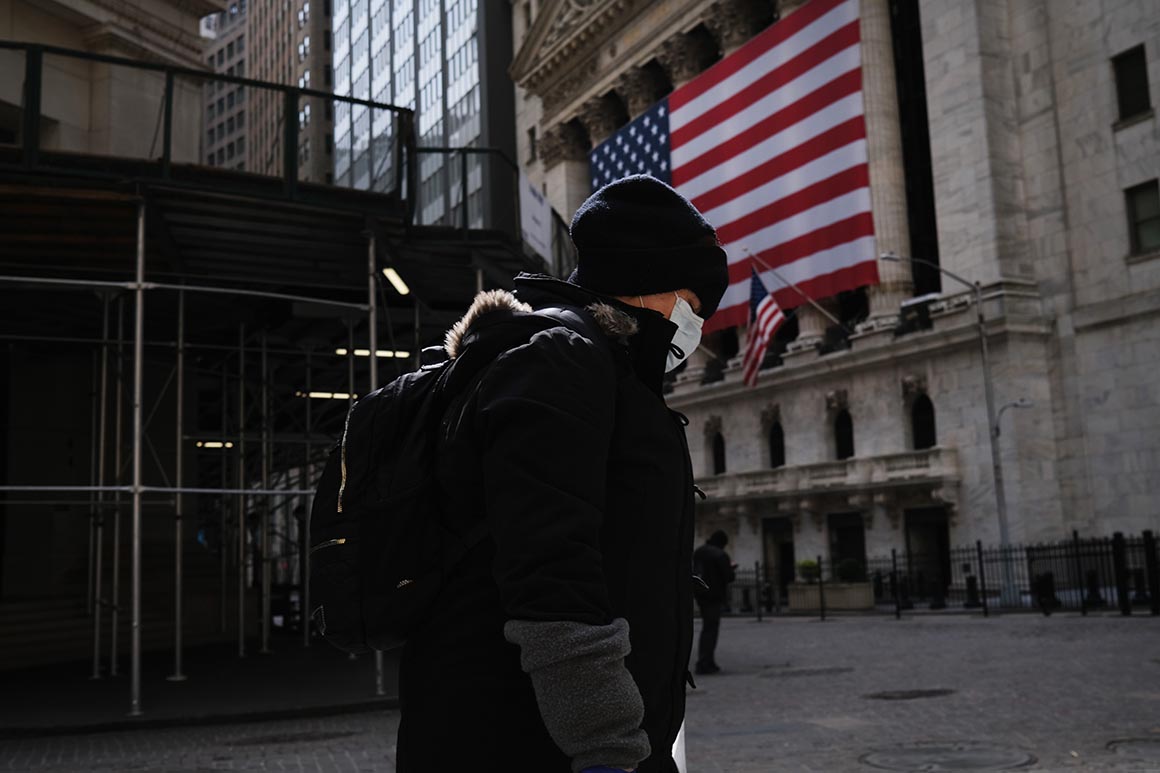
Given the drumbeat of the news at the time, I was expecting apocalyptic prophesy. A majority of the predictions, however, sound not just tolerable but affirmatively good. “Science reigns again.” “A return to faith in serious experts.” “A decline in polarization.” “A new kind of patriotism.” “New kinds of reform.” “A healthier digital lifestyle.” “A revival of parks.” And so on.
Hmmm … On the one hand: Count me in for the congenial future that awaits once we get past this nasty virus. On the other hand: Are we sure these predictions are in response to the pandemic, and not simply ideas the writers have been evangelizing for long before Covid-19?
Nothing wrong, of course, with looking on the bright side, and recall that the commentary ran in mid-March when a vision of Americans knit together against the virus was arguably still a realistic prospect. I know and respect several of the writers. So it wasn’t initially clear why this sunny-side-up view of the post-pandemic future should leave me sullen and scornful.
Partly this reflects the mood of the moment. Bossed around by the authorities, claustrophobic in a shutdown of indeterminate length, I ruefully find myself with a gag impulse toward people greeting the plague with more idealism and good cheer than I can muster. Reading some of the big thinkers was like getting a suppertime knock on the door from Ned Flanders, Homer Simpson’s peppy, pious neighbor.
More fundamentally, my wariness toward seeing the glass half-full is grounded in the experience of the past generation. Unfortunately, that experience offers ample reason to be pessimistic about the next one. People who feel that the pandemic is going to “break the fever” of the last couple decades—that it will finally drain public life of its malice, its addiction to remorseless conflict and conspiracy theory, its devil-take-the-hindmost nihilism—carry the burden of proof. I’d like to buy it but can’t yet.
What if instead of ushering in a new era of respect for science—including the obvious truth that most policy questions around science involve mixed evidence and relative probabilities rather than absolute certainties—the next several years are marked by a distorted, dishonest, told-you-so debate over the pandemic? What if instead of launching a new season of public interest, a weak economy leaves little money or political will to solve long-deferred problems like climate change? What if this cataclysm makes us even more selfish and short-term in our thinking?
In short: What if we’re screwed?
None of this is a prediction. Nor is it a generational lament. Unlike some younger friends —who feel they came of age with events conspiring against their life prospects and are aggrieved about it—I was already in my thirties at the turn of the century and my basic worldview was pretty well set. That view was that the tides of modern life were moving unevenly but inexorably toward liberal democracy; that politics often could be distorted by corruption or fanaticism but was more rational than irrational; that public life was contentious and chaotic but more on the level than not.
So, like many of the thinkers commissioned by POLITICO, my impulse was to respond to the succession of astounding, can-this-really-be-happening events of the past 20 years by assuming they might somehow be occasions to hit the reset button, to get back to normal. Maybe a bizarre election in which George W. Bush became president under disputed circumstances will cause him to transcend ideological warfare and find common ground. Maybe the horror of 9/11 will be a great unifying event in the United States and for civilized people around the world. Maybe Hurricane Katrina will focus useful attention on climate change and the need to invest in improved national infrastructure. Maybe the 2008 financial crash will bring pressure to bear on income inequality. Maybe Donald Trump surprised even himself with his 2016 victory and will actually prove to be an effective post-partisan dealmaker.
And, yes, maybe the pandemic “will promote more constructive patterns in our cultural and political discourse,” in the words of Columbia University psychology professor Peter T. Coleman, who participated in the POLITICO Magazine article. Who wouldn’t join writer and critic Michiko Kakutani in wishing for a revival of “a reasoned policy process” that is “predicated on evidence-based science and historical and geopolitical knowledge”?
Could happen.
More than that, should happen. The rehabilitation of public discourse and decision-making is the political and moral imperative of the next generation. Shallow pessimism is less appealing even than shallow optimism. Perhaps realism will save us. In the spirit of engagement with the POLITICO Magazine predictors, I’d offer a handful of questions on which the outcome of this astonishing chapter of history caused by coronavirus will hinge:
Do we have confidence in economics?
The discipline is the most influential of the social sciences because so many people regard its practitioners like physicians—in possession of almost god-like insight into subjects laypeople can barely understand, and able to cure what ails us.
The country would be in full despair, rather than partial, if we did not basically believe that economic understanding can save us—that we can use stimulus measures, and monetary policy, to halt the freefall of national shutdown and with relative speed restore prosperity.
But, just as physicians don’t always know how to save patients, economists are improvising in the midst of a crisis without a precise precedent. What if the old dicta about how to stimulate growth don’t work this time (recalling how slowly and unevenly they worked in the first few years following the 2008 crash)?
Source: politico.com
See more here: news365.stream






